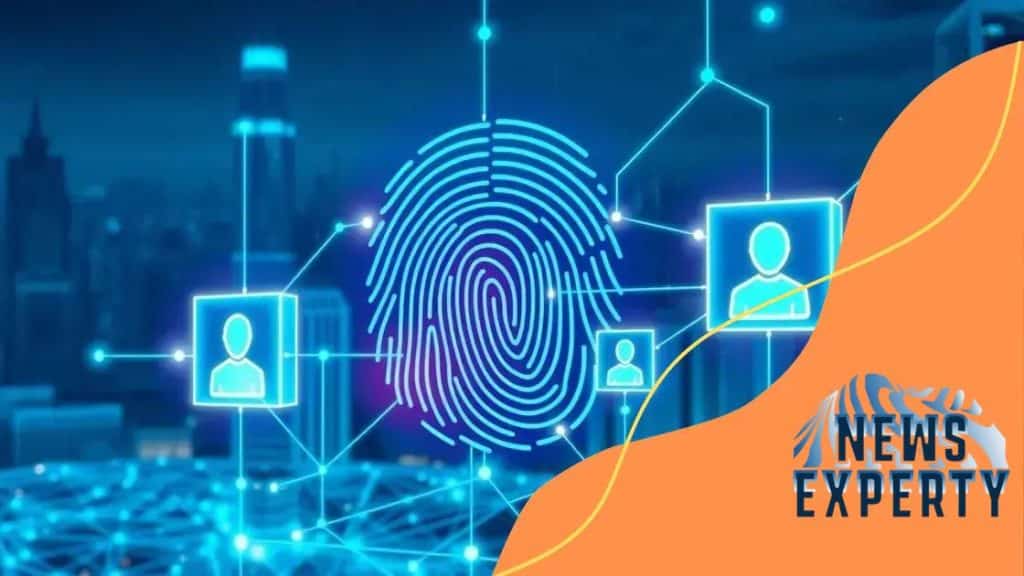The role of blockchain in securing digital identities

Anúncios
The role of blockchain in securing digital identities involves enhanced security through decentralization, enabling users to control their own data while preventing unauthorized access and fraud.
The role of blockchain in securing digital identities is gaining traction in today’s digital landscape, where privacy is as critical as accessibility. Have you ever wondered how blockchain technology can safeguard your personal information online? Let’s dive into this transformative topic.
Anúncios
Understanding blockchain technology
Understanding blockchain technology is essential to grasp its transformative potential in various sectors, particularly in securing digital identities. It is a decentralized system, meaning no single entity holds authority over the data, allowing for enhanced security and transparency.
Key Features of Blockchain
This technology operates on a structure of blocks linked together, each containing a list of transactions. The blocks are chained together using cryptographic hashes, ensuring that altering any information within a block is incredibly difficult.
- Decentralization enhances security.
- Transparency allows users to verify transactions independently.
- Immutability ensures that once data is added, it cannot be changed.
- Smart contracts automate transactions when conditions are met.
Additionally, blockchain technology operates through a consensus mechanism to validate transactions. This means that multiple users must agree on the validity of a transaction before it is added to the blockchain. This further bolsters security and trust among users.
Anúncios
As we delve deeper into the role of blockchain in securing digital identities, it’s essential to recognize how this technology offers protection against unauthorized access and fraud. By leveraging the robust architecture of blockchain, personal information can be kept secure, making it a reliable solution for identity management in a digital world.
How blockchain ensures privacy for digital identities
How blockchain ensures privacy for digital identities is a critical aspect in understanding its role in today’s digital age. Blockchain provides a secure framework that enables individuals to control their own data.
Maintaining User Anonymity
One of the greatest advantages of blockchain technology is its ability to maintain user anonymity. When transactions occur on the blockchain, they are recorded with unique cryptographic keys rather than personal identifiable information. This means that while transactions are visible on the blockchain, the identities behind them are protected.
- Users control their data and who sees it.
- Anonymity prevents unauthorized access to personal information.
- The use of public and private keys secures identities.
- Data sharing is selective and controlled by the user.
Furthermore, blockchain technology employs encryption to safeguard sensitive information. Each transaction is encrypted, making it nearly impossible for hackers to access or alter personal data without detection. This encryption reinforces the trust that users have in the system, as they know their information remains untouchable.
In addition to encryption, blockchain networks often utilize consensus mechanisms, which require multiple participants to verify transactions before they are recorded. This process adds another layer of security, making it exceedingly difficult for fraudulent activities to occur.
With these features combined, blockchain stands out as a powerful tool in creating a secure environment for managing and protecting digital identities. By using blockchain, individuals gain control over their own information, ensuring privacy while participating in the digital space.
The advantages of using blockchain for identity management

The advantages of using blockchain for identity management are significant and help reshape how identities are verified and stored. This technology offers a safer, more efficient way to handle sensitive personal data.
Enhanced Security
One of the primary benefits of blockchain is its enhanced security. Each data entry in a blockchain is linked to the previous one, creating a secure chain of information. This makes it difficult for hackers to alter personal information without detection.
- Decentralization reduces the risk of data being compromised.
- Crytographic techniques ensure only authorized access to data.
- Immutability prevents tampering once information is recorded.
- Users have direct control over their data.
Moreover, blockchain improves user experience by simplifying the identity verification process. Traditional systems often require multiple steps and can be cumbersome. With blockchain, a user can complete verification quickly and efficiently by using their unique cryptographic keys.
Cost Effectiveness
Using blockchain for identity management can also lead to considerable cost savings. Traditional identity verification methods involve numerous intermediaries. With blockchain, the need for third-party services diminishes, reducing associated costs.
- Lower transaction fees compared to conventional methods.
- Reduced risk of fraud saves money in the long run.
- Streamlined processes cut down time spent on verification.
- Minimized paperwork leads to ecological benefits.
Additionally, blockchain technology is future-proof. As it continues to evolve, so will its applications in identity management. By adopting blockchain now, organizations can future-proof their identity solutions and stay ahead of emerging technologies.
Real-world applications of blockchain in identity security
Real-world applications of blockchain in identity security are transforming how we protect personal information. Various industries are adopting this technology to enhance verification processes while ensuring user privacy.
Financial Services
In the financial sector, blockchain is used for secure identity verification. Banks and financial institutions use this technology to streamline KYC (Know Your Customer) processes. By using blockchain, they can quickly and securely verify customer identities without compromising sensitive information.
- Reduces fraud by providing secure identity checks.
- Speeds up onboarding processes for new clients.
- Enables sharing of verified identities across institutions.
- Minimizes the risk of identity theft.
Additionally, the healthcare industry utilizes blockchain to manage patient identities securely. Patient records are stored on the blockchain, allowing healthcare providers to access verified information without risk of tampering.
Government Services
Governments around the world are also leveraging blockchain for identity management. Digital identities stored on the blockchain can simplify access to public services. Citizens can verify their identities for voting, receiving social services, or accessing healthcare.
- Enhances transparency in government service delivery.
- Reduces paperwork and administrative costs.
- Improves accessibility to essential services.
- Eliminates duplicate identities and records.
Moreover, identity security in the travel industry has seen significant improvement thanks to blockchain. Companies are implementing decentralized identity solutions for passport verification. Travelers can authenticate their identities quickly and securely at borders without exposing personal data.
These real-world applications demonstrate how blockchain is reshaping the landscape of identity security across various sectors. By leveraging this innovative technology, organizations can enhance trust, reduce fraud, and protect personal information in our increasingly digital world.
Future trends in blockchain and digital identity
Future trends in blockchain and digital identity highlight the evolution of technology and its growing impact on personal security. As we look ahead, several key developments are emerging that will reshape how identities are managed.
Decentralized Identity Solutions
One major trend is the rise of decentralized identity solutions. Unlike traditional methods, which rely on central authorities, decentralized systems allow individuals to control their own identities. Users can store their information on a blockchain, giving them the power to choose what to share and with whom.
- Empowers individuals to manage their identities securely.
- Enhances privacy by reducing third-party data sharing.
- Increases accessibility for underrepresented populations.
- Fosters trust in digital interactions.
This approach helps to mitigate risks associated with identity theft, ensuring personal information remains secure and private.
Integration with IoT Devices
Another significant trend involves the integration of blockchain with Internet of Things (IoT) devices. As more devices connect online, ensuring secure identity management becomes essential. Blockchain can provide a framework for securely identifying and authenticating devices.
- Enhances security in smart homes and cities.
- Streamlines device management and communication.
- Reduces the risk of hacking and unauthorized access.
- Facilitates seamless user experiences.
The combination of blockchain and IoT will likely improve efficiency while enhancing security measures for device interactions.
Moreover, artificial intelligence (AI) will play a crucial role in the future of blockchain and digital identity. AI can analyze vast amounts of data to spot anomalies, improving fraud detection in identity management systems. This integration can lead to smarter, more responsive security measures.
As these trends unfold, we will likely see a more secure and user-centric approach to digital identity. The evolution of blockchain technology holds promise for revolutionizing how we protect and manage our personal information in a digital world.
Conclusion: The future of blockchain in digital identity management is bright. As we embrace advancements like decentralized identity solutions, IoT integration, and AI analytics, we can expect increased security and user control. These trends will not only streamline processes but also protect our personal information more effectively. By adopting these innovations, we are paving the way for a safer digital world.
FAQ – Frequently Asked Questions about Blockchain and Digital Identity
What is blockchain technology?
Blockchain technology is a decentralized system for recording transactions securely, making it challenging to alter past data.
How does blockchain enhance security for digital identities?
It provides security through decentralization, cryptographic techniques, and immutability, protecting personal information from unauthorized access.
What are decentralized identity solutions?
Decentralized identity solutions allow individuals to control their own identity data without relying on central authorities, enhancing privacy.
How will AI influence blockchain and digital identity in the future?
AI will help analyze massive data sets to detect fraud, improving identity verification processes and enhancing security measures.





